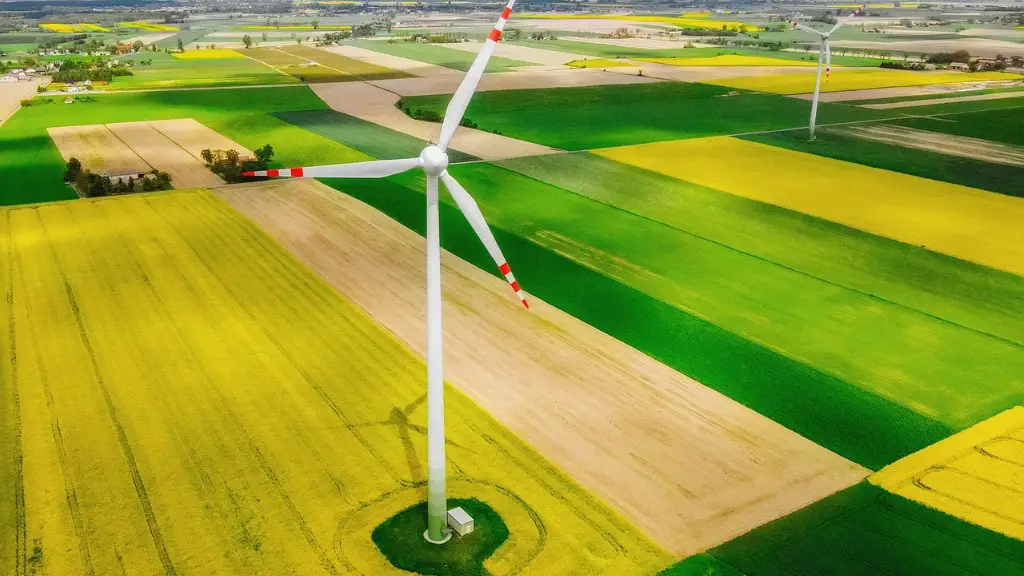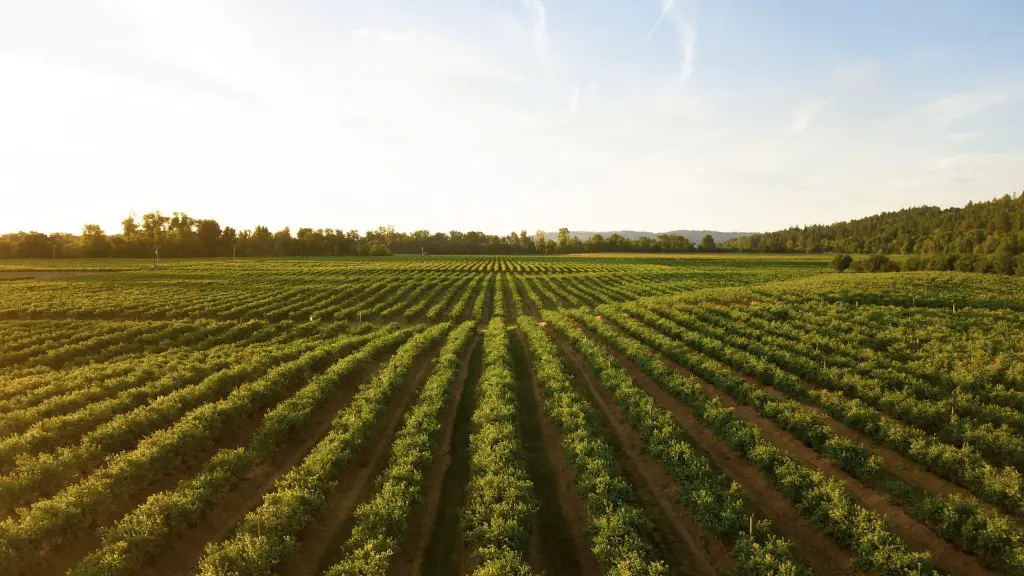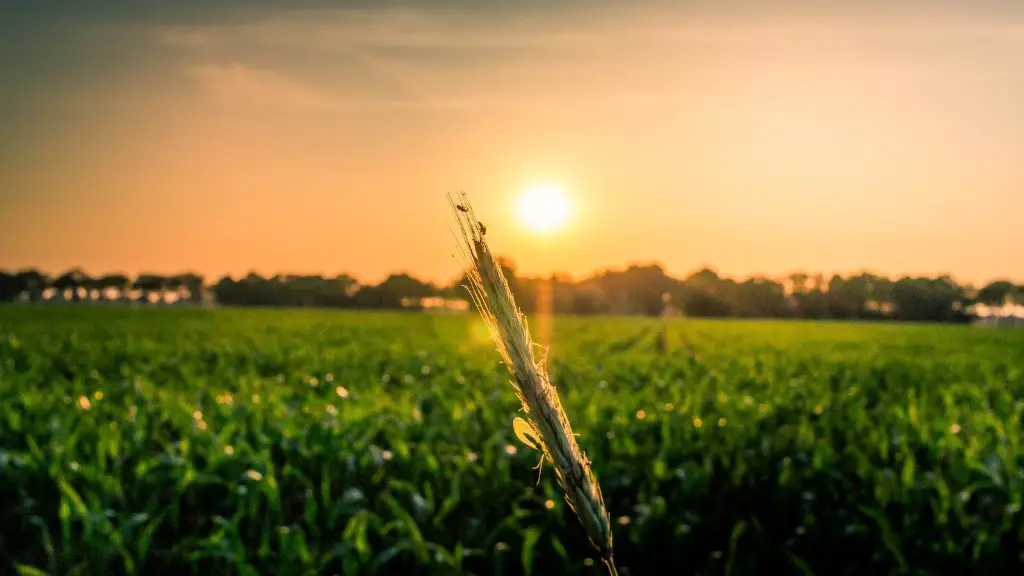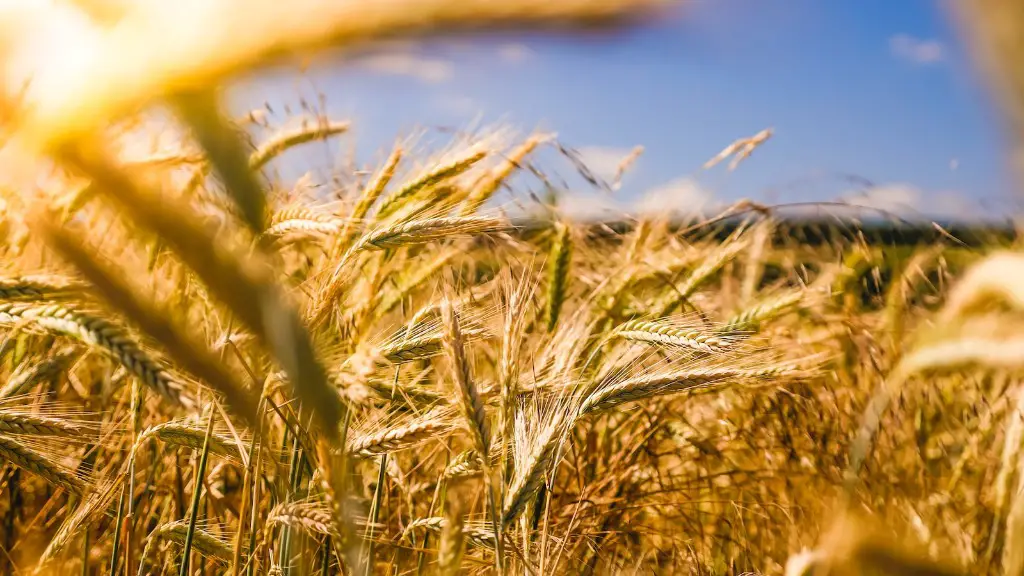Animal welfare is important to agriculture for many reasons. Animal welfare is a humane ethic that considers the interests of nonhuman animals, particularly in regard to their pain, suffering, and death. It also includes a concern for their quality of life. The welfare of farm animals has been a topic of debate and concern for many years. Farm animals are commonly considered to be less important than other animals because they are considered to be property. However, they are sentient creatures that feel pain and suffer just as any other animal would. There are many ways to improve the welfare of farm animals, and it is important to do so because they are sentient creatures that deserve to be treated humanely.
There are a number of reasons why animal welfare is important to agriculture. First, animals that are well-cared for are more productive. This means that farmers can produce more food with fewer animals, which is important for food security. Second, happy animals are also healthier animals, which reduces the spread of disease. This is important not just for the health of the animals, but also for the people who handle them. Finally, consumers are increasingly interested in knowing that the animals they eat were treated humanely, and they are willing to pay more for food that meets their standards.
What is the importance of animal welfare?
Animal welfare is important because it helps ensure that animals are treated humanely and with respect. When animals are treated well, they are more likely to lead healthy and happy lives. In turn, this benefits people who interact with them, whether it be for food, entertainment, or companionship.
There are many different aspects to animal welfare, but some of the most important include providing animals with proper food and shelter, ensuring they have adequate space to move and exercise, and preventing them from being subjected to unnecessary pain or suffering.
While some people may not believe that animals deserve the same level of care and consideration as humans, there is growing evidence that animals are sentient beings capable of experiencing a wide range of emotions. Therefore, it is important to take their welfare into account in order to create a society that is just and compassionate for all.
Livestock play an important role in sustainable food systems. They provide a source of natural fertilizer in the form of manure, and can also be used as draft animals to help boost productivity in regions where there is low mechanization. This makes them valuable assets for vulnerable communities.
Why is animal welfare important for the environment
It is important to have healthy and well-cared-for animals as well as ecosystems to support the agricultural and natural processes that promote food security and mitigate global hunger. Seventy-five percent of global crop species rely on animal pollination to reproduce. If animals are not healthy and well-cared-for, this process will be disrupted and could lead to a decrease in food security and an increase in global hunger.
Animal welfare and food safety are intrinsically linked. This means that if animals are not treated well, they will produce food that is not safe for human consumption. The majority of meat produced in the United States comes from animal factories, the largest of which are called CAFOs, concentrated animal feeding operations. These factories often do not adhere to proper animal welfare standards, which can lead to sick animals and contaminated food. In order to ensure both animal welfare and food safety, it is important to support companies that adhere to proper animal welfare standards.
What are the 3 main concepts of animal welfare?
The three major concepts of animal welfare put forward by researchers are health and production, natural behavior, and feelings (affective states). While there is some debate over the exact definition of animal welfare, these concepts provide a useful framework for thinking about the topic. Health and production refer to the physical well-being of animals, and how they are able to meet their needs for food, water, and shelter. Natural behavior encompasses the instinctive behaviors that animals display in the wild, and how they are able to express these behaviors in captivity. Finally, feelings refer to the emotional states of animals, and how they experience pleasure and pain.
Animal rights and animal welfare are two different things. Animal welfare supports the use of animals by humans, and seeks to improve their treatment and well-being. Animal rights is based on the view that animals have similar, or the same rights as humans. Animal rights advocates do not distinguish between humans and animals.
What are animal issues in agriculture?
It is undisputable that the animal agriculture industry is the leading cause of most environmental degradation that is currently occurring. detrimental effects of this industry include overgrazing, habitat loss, overfishing, and more. We are currently in the next mass extinction and animal agriculture is only fueling this catastrophe. With this in mind, it is clear that something needs to be done in order to mitigate these effects. One possible solution is to reduce our reliance on animal agriculture products. This can be done by increasing our consumption of plant-based foods. Not only would this be better for the environment, but it would also be better for our health.
There are a vast number of chickens on the planet, far more than any other type of livestock. Cattle are the second most common livestock animal, but there are still fewer of them than chickens. Sheep, ducks, and goats are all less common than chickens, and pigs are the least common of all.
What are 3 reasons why agriculture is important
1. Agriculture is the main source of raw materials for many industries.
2. Agriculture is important to international trade.
3. Agriculture plays a big role in a nation’s revenue.
4. Agriculture provides employment for many people.
5. Agriculture is crucial to a country’s development.
6. Agriculture can help heal the environment.
7. Agriculture goes hand-in-hand with war.
8. Agriculture is a way of life for many people.
The Five Freedoms are commonly used to assess the welfare of animals in captivity. They were first proposed by the British philosopher, ethicist, and animal welfare scientist Bernard Rollin in his book Animal Rights and Human Morality.
The Five Freedoms are:
Freedom from Hunger and Thirst: By ready access to fresh water and diet to maintain health and vigor.
Freedom from Discomfort: Freedom from pain, injury, or disease.
Freedom to Express Normal Behavior: Freedom to perform natural behaviors that promote physical and psychological well-being.
Freedom from Fear and Distress: Freedom from fear and distress due to physical or psychological threats.
While the Five Freedoms are commonly used to assess animal welfare in captivity, they can also be applied to wild animals. For example, Freedom from Fear and Distress could be used to assess the welfare of animals in situations where they are exposed to humans, such as in tourism or hunting.
What are 5 animal welfare needs?
A suitable diet for an animal is one that meets their nutritional needs and helps them to exhibit normal behaviour patterns. They need to be able to access food and water, and their diet should be appropriate for their species.
Animals also need to be housed in a way that meets their needs. They should have access to shelter and space, and be protected from pain, suffering, injury and disease.
Livestock is a major source of agricultural output in both developed and developing countries, contributing to the livelihoods of billions of people worldwide. In developed countries, livestock accounts for nearly 40 percent of total agricultural output, while in developing countries it contributes 20 percent. Livestock farming supports the livelihoods of 13 billion people worldwide, making it a vital part of the global economy.
How do animals play an important role in food production
Farm animals play an important role in the food system by converting by-products and grass resources into valuable food and manure. By doing so, they can contribute significantly to human food supply while reducing the environmental impact of the entire food system.
Intensive farming practices often involve confining animals to small spaces in order to maximize production. However, this can have a negative impact on animal welfare by failing to provide them with their basic needs, such as adequate space. These animals are often kept in cramped conditions which can cause them discomfort, lameness, and aggression. They are often given such little space that they cannot turn around or lie down, which can lead to stress and poor health.
What is animal welfare in agriculture?
Humane farming is a type of agriculture that focuses on the humane treatment of animals raised for food. This type of farming can use less feed, fuel and water than intensive farming, reducing costs and pollution. humane farms can create jobs, boost profits and keep local food supplies healthy. By farming crops and livestock, humane farms can reduce environmental damage – recycling nutrients and improving the soil.
There are many ways to make a difference when it comes to promoting animal welfare. Here are six ways you can help:
1. Volunteer: If you can’t donate money to animal shelters, you can always visit one and offer a helping hand. animal shelters are always in need of volunteers to walk dogs, clean cages, and do other tasks.
2. Donate: Animal charities, rescue organizations, and shelters can always accept your donations. Donations help to pay for food, shelter, and medical care for animals in need.
3. Foster: Adopting an animal is not always possible for everyone, but fostering an animal can be a great way to help. Fostering an animal means you agree to temporary care for an animal in need until they can be permanently placed in a home.
4. Adopt: One of the best ways to promote animal welfare is to adopt an animal from a shelter. This gives a homeless animal a loving home and opens up a space for another animal in need.
5. Educate: spreading awareness about animal welfare is an important step in promoting animal welfare. You can educate others about animal welfare issues and ways they can help make a difference.
6. Advocate:
Conclusion
Animal welfare is important to agriculture for a variety of reasons. For example, animals that are well-cared for are more likely to be healthy and productive, and thus more profitable. Additionally, humane treatment of animals can help to ensure public trust in the agricultural industry. Finally, good animal welfare practices can help to prevent animal suffering, which is something that many people believe is important.
Animal welfare is an important consideration for those in the agricultural industry for a variety of reasons. First and foremost, animals that are well-cared for are more likely to be healthy and productive, which is good for business. Additionally, treating animals humanely is the right thing to do, and it is important to many consumers who are concerned about animal welfare. Finally, there are government regulations in place that mandate certain standards of care for animals, so it is important to be aware of and compliant with these rules.





